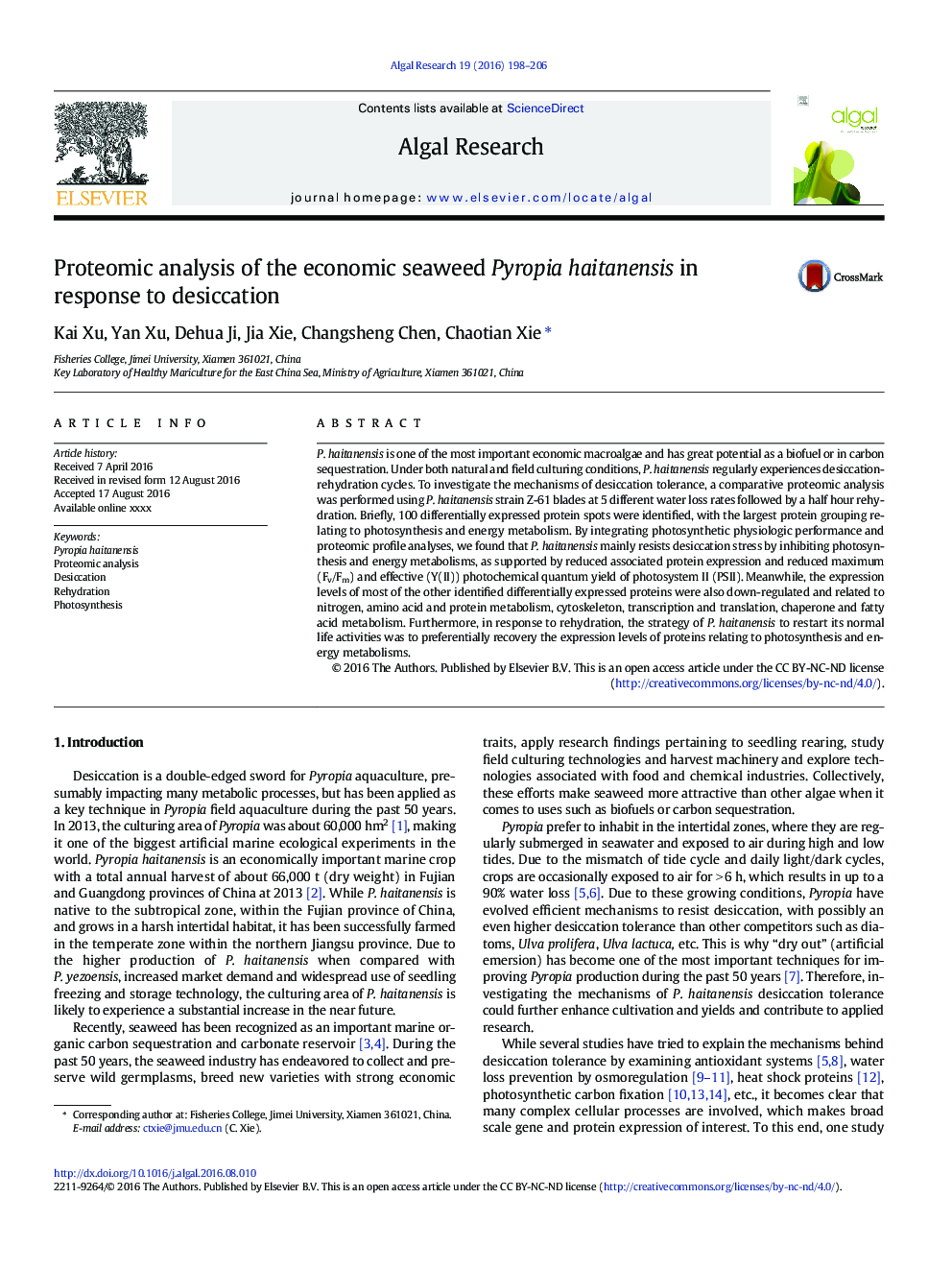| Article ID | Journal | Published Year | Pages | File Type |
|---|---|---|---|---|
| 8086530 | Algal Research | 2016 | 9 Pages |
Abstract
P. haitanensis is one of the most important economic macroalgae and has great potential as a biofuel or in carbon sequestration. Under both natural and field culturing conditions, P. haitanensis regularly experiences desiccation-rehydration cycles. To investigate the mechanisms of desiccation tolerance, a comparative proteomic analysis was performed using P. haitanensis strain Z-61 blades at 5 different water loss rates followed by a half hour rehydration. Briefly, 100 differentially expressed protein spots were identified, with the largest protein grouping relating to photosynthesis and energy metabolism. By integrating photosynthetic physiologic performance and proteomic profile analyses, we found that P. haitanensis mainly resists desiccation stress by inhibiting photosynthesis and energy metabolisms, as supported by reduced associated protein expression and reduced maximum (Fv/Fm) and effective (Y(II)) photochemical quantum yield of photosystem II (PSII). Meanwhile, the expression levels of most of the other identified differentially expressed proteins were also down-regulated and related to nitrogen, amino acid and protein metabolism, cytoskeleton, transcription and translation, chaperone and fatty acid metabolism. Furthermore, in response to rehydration, the strategy of P. haitanensis to restart its normal life activities was to preferentially recovery the expression levels of proteins relating to photosynthesis and energy metabolisms.
Related Topics
Physical Sciences and Engineering
Energy
Renewable Energy, Sustainability and the Environment
Authors
Kai Xu, Yan Xu, Dehua Ji, Jia Xie, Changsheng Chen, Chaotian Xie,
